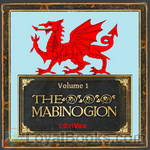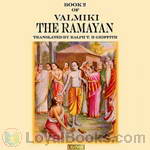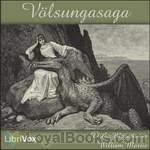|
Books Should Be Free Loyal Books Free Public Domain Audiobooks & eBook Downloads |
|
|
Books Should Be Free Loyal Books Free Public Domain Audiobooks & eBook Downloads |
|
Ancient Texts |
|---|
Book type:
Sort by:
View by:
|
By: Unknown | |
|---|---|
 The Mabinogion
The Mabinogion
Sample a moment of magic realism from the Red Book of Hergest: On one side of the river he saw a flock of white sheep, and on the other a flock of black sheep. And whenever one of the white sheep bleated, one of the black sheep would cross over, and become white; and when one of the black sheep bleated, one of the white sheep would cross over, and become black. Before passing on to the Mabinogion proper, Lady Charlotte Guest devotes Volume I of her compilation of medieval Welsh tales to three brief romances of Arthur’s Court... | |
 Theaetetus
Theaetetus
Theaetetus (Ancient Greek: Θεαίτητος) discusses concepts including perception, true judgment and knowledge. Socrates compares the human mind to a piece of wax and is critical of lawyers who seek only to persuade. | |
 Parmenides
Parmenides
Parmenides (Ancient Greek: ΠΑΡΜΕΝΙΔΗΣ) recounts a meeting between Socrates, Zeno and Parmenides. Topics discussed include universals, plurality and the One. | |
 Statesman
Statesman
Statesman (Ancient Greek: Πολιτικός) discusses God's role in maintaining the universe and describes the statesman as a good shepherd who promotes intermarriage between the orderly and courageous. | |
 Sophist
Sophist
Sophist (Ancient Greek: Σοφιστής) discusses being and not-being while drawing a distinction between the philosopher and the sophist. | |
 Cratylus
Cratylus
Cratylus (ΚΡΑΤΥΛΟΣ) discusses whether things have names by mere convention or have true names which can only be correctly applied to the object named and may have originated from God. | |
 Charmides
Charmides
Charmides (Χαρμίδης) discusses the virtue of temperance. | |
 Laches
Laches
Laches (Λάχης) discusses examples of courage including weapons masters, soldiers who stand firm in battle, ferocious animals and the wise person who endures evils. | |
 Philebus
Philebus
Philebus (ΦΙΛΗΒΟΣ) discusses pleasure, wisdom, soul and God. | |
 Lysis
Lysis
Lysis (Λύσις) discusses friendship and love between the good and bad. | |
 Menexenus
Menexenus
Menexenus (ΜΕΝΕΞΕΝΟΣ) is thought to have been written by Plato (ΠΛΑΤΩΝ). The dialogue consists of Socrates (ΣΩΚΡΑΤΗΣ) recounting a funeral oration he claims to have learned from the female philosopher Aspasia (ΑΣΠΑΣΙΑ) who may have been wealthy, a courtesan or both. | |
 Euthydemus
Euthydemus
Euthydemus (Εὐθύδημος) and Dionysodorus the sophists discuss the meaning of words with Socrates. | |
 Eryxias
Eryxias
Eryxias (ΕΡΥΞΙΑΣ) may not have been written by Plato (ΠΛΑΤΩΝ). The dialogue discusses whether wealth has value and what the aim of philosophy should be. | |
By: Valmiki | |
|---|---|
 The Ramayana Book 2
The Ramayana Book 2
The Ramayana is an ancient Sanskrit epic. It is attributed to the Hindu sage Valmiki and forms an important part of the Hindu canon (smṛti). The Ramayana is one of the two great epics of India, the other being Mahabharata. It is the story of Rama, who emabrks on an epic journey followed by the fight with Ravana, the demon king who abducted Rama's wife, Sita. The epic depicts the duties of relationships, portraying ideal characters like the ideal servant, the ideal brother, the ideal wife and the ideal king. (Introduction by Om123) | |
By: Will Durant (1885-1981) | |
|---|---|
 Story of Aristotle's Philosophy
Story of Aristotle's Philosophy
This little Blue Book No. 39, by Will Durant, deals with Aristotle , a Macedonian pupil of Plato, who became the teacher of Prince Alexander. While his pupil went off to conquer the world, Aristotle returned to Athens and founded his school, the Lyceum. There he amassed the first great collection of plants and animals and laid the foundations of biology, logic, literary theory, ethics, and political science. Departing from abstract Platonic universals, Aristotle described such natural processes as the developing embryo of the chick... | |
By: William Morris (1834-1896) | |
|---|---|
 Völsungasaga
Völsungasaga
The 13th century Icelandic Völsungasaga is usually read by people studying the Poetic Edda or Wagner’s Ring – which obscures the fact it is a much better story than practically everything derived from it. A riddle-telling dragon, a broken sword, a hooded mysterious wanderer – cannibalism, incest, mutilation, and sensitive hearts. This is R-rated Tolkien – and the unashamedly archaic Magnússon-Morris translation is up for the adventure.Passages spoken in Old Norse are taken from the edition of Sophus Bugge, Berlin, 1891. | |
By: William Q. Judge (1851-1896) | |
|---|---|
 Ocean of Theosophy
Ocean of Theosophy
Judge wrote this book because he saw a need for a book about Theosophy that everyone could understand. Discussed are after-death states, reincarnation, karma, the pitfalls of pseudo-occultism, the 7 natures of man, cyclic evolution, sages and adepts, psychic phenomena and more. Although the book is fairly elementary it will help you in your journey, whether you are just starting out or have been at it for years. | |